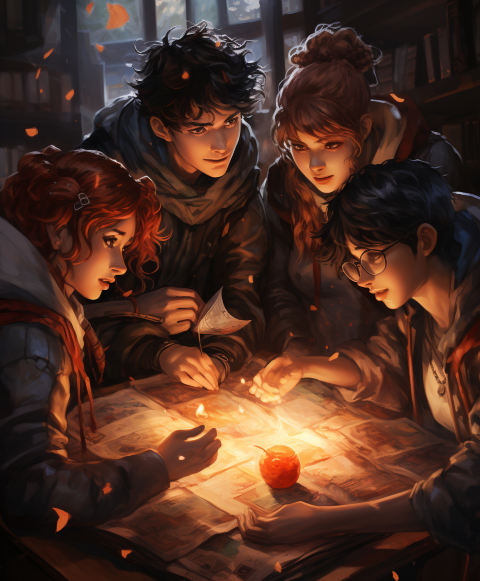The DM is the First Mover in any Dungeons & Dragons campaign. It’s not that they’re superior or more important; rather, the game hinges on the DM’s involvement. As the game’s primary driving force, DMs significantly influence its tone and genre. Moreover, since they orchestrate the world, it naturally reflects their point of view and judgment. This aspect of game-running is a feature, not a flaw. While it’s perfectly valid for players to have preferences about the game’s style, the DM’s creative perspective is not inherently wrong.

Many people seem uncomfortable with this reality, but it’s time to accept it. DMing is not a covert power grab; it’s a role undertaken for enjoyment and creative fulfillment. Often, DMs step into this role simply because they cannot find a suitable game, so they opt to create one. This is not a conspiracy; it’s how games get played.
D&D 5e reiterated a social norm that has been integral to DMing since the hobby’s inception. Informally known as “Rule 0,” the core rules state: “The rules aren’t in charge. You, the Dungeon Master, are the final arbiter of the rules.” However, it also advises the DM to maintain consistency in rulings and ensure players understand the decisions and applied rules. This highlights that while DMs may initiate the game, its success depends on player engagement. All TTRPGs are inherently collaborative experiences.
“Perils in Pinebrook,” the latest D&D adventure, subtly but significantly modifies Rule 0. This adventure explicitly includes a new version of Rule 0:
“Rule 0 of D&D is simple: Have fun. It’s fine if everyone agrees to change the rules, as long as doing so makes the game more enjoyable for everyone.”
While this statement captures the essence of gaming, it doesn’t fully acknowledge the typical process of game formation and momentum building. DMs usually originate the campaign or game idea, developing it until it’s robust enough to present to players. This isn’t a scheme to control players; it’s a natural part of the creative process. Of course, DMs must entice potential players with their game, revising their ideas if necessary to attract the desired audience. However, suggesting that DMs need player approval before even formulating their campaign idea could be detrimental, especially for new DMs.
Additionally, this shift underscores what many perceive as a troubling trend in the evolution of DnD in recent years. The core game, rather than uniting players, appears to be setting the community against itself, fostering an atmosphere of mutual suspicion and policing. While no single change in the game is solely responsible for this, there seems to be an aspect of DnD’s development that inadvertently caters to the ‘social point-scoring’ behavior rampant in online cultures. Although the underlying intentions behind these changes are commendable, it’s crucial to recognize how toxic elements of online culture can exploit these changes in ways detrimental to the hobby.
Games are inherently about negotiation, but the initial idea must come from someone. Observing this rule and the evolving toxic behaviors on social media, I see a potential for harm. There’s a risk that some community segments might expect DMs to seek permission for their ideas, potentially stifling games before they begin.